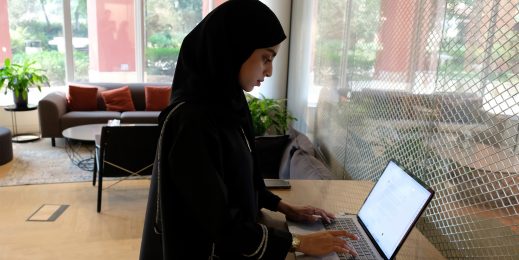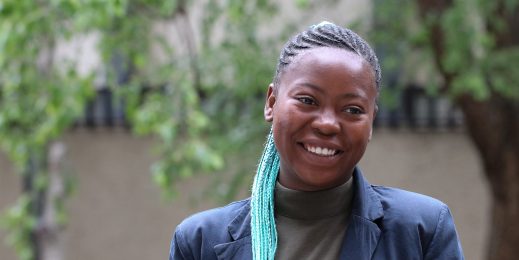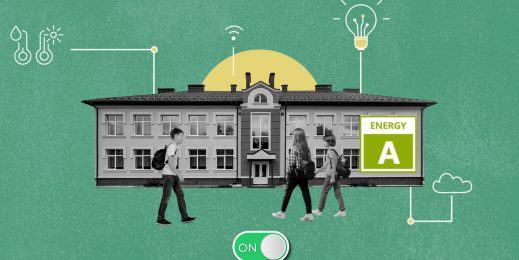
Tech jobs fueling economic recovery in Europe
Erik Engblom has lived in Eskilstuna, Sweden, his entire 28 years, not counting time spent in Karlskrona getting a master’s degree in industrial engineering. After graduating, he moved back home to take a job as a technical consultant at Alten, a consulting business.
He was happy. Then in March 2020, COVID-19 hit Sweden, hard. Engblom’s job was terminated.
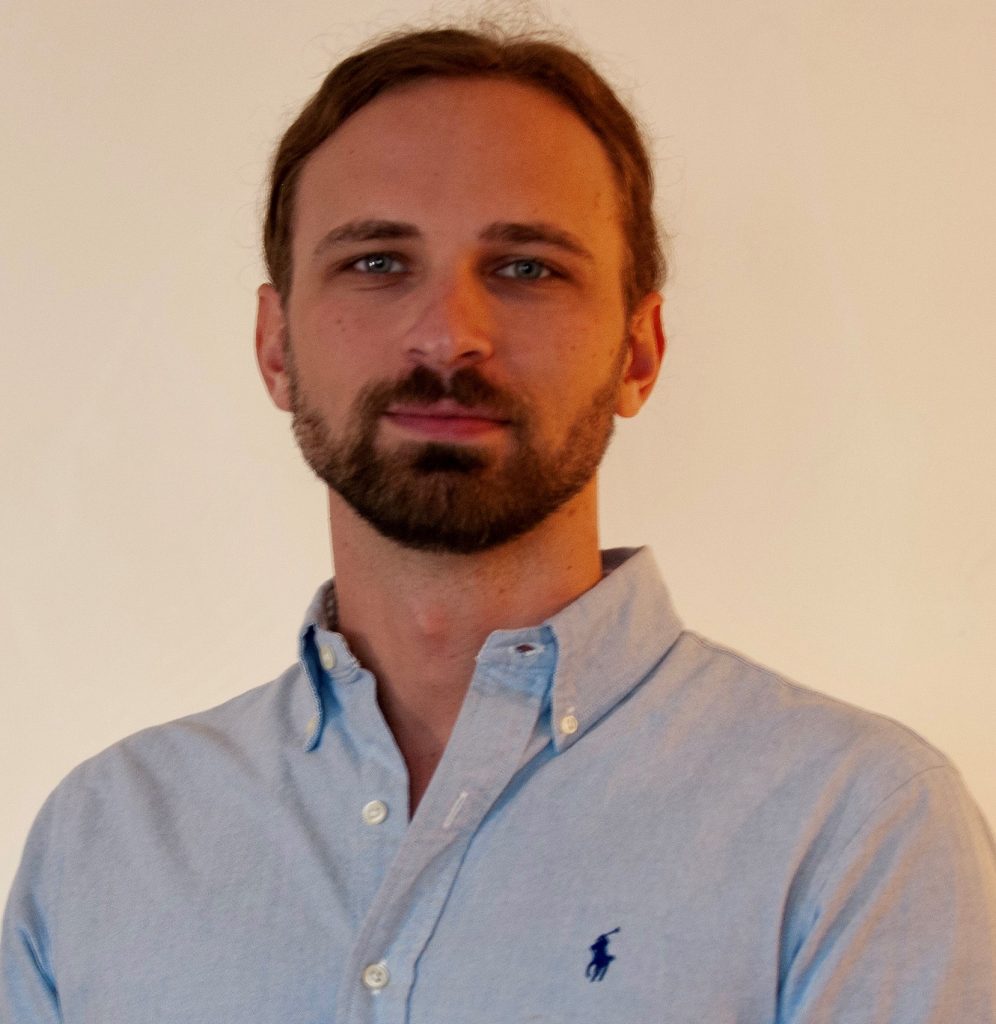
“It was the biggest impact on my life,” he says. But he didn’t panic. Rather than frantically grabbing the first job he could find, Engblom took stock of the situation—and himself. “I asked myself, what can I do to position myself better in the work market?” he says. Equally importantly, he researched the skills that would be in demand in the post-COVID world. He very soon identified information technology as the field of the future.
After a storm of searching on YouTube, Instagram, LinkedIn, and other sites, Engblom found an ad for a Microsoft Power BI training program. Part of an initiative by Microsoft, LinkedIn, and GitHub to help 25 million people worldwide gain the skills to succeed in the increasingly digital world of work, the three-to-six-month program retrained people like Engblom in Power BI, Azure Cloud, datacenter administration, and other digital skills.
After completing the Microsoft training, Engblom accepted a job as a consultant at Capgemini, a global IT consulting firm, where he uses everything he learned in his course, he says. “That class was the second biggest impact on my life,” he says.
He admits to being nervous when he started his job in the so-called real world. He was concerned that the training might not have gone deep enough to enable him to perform the actual work required. “So it was a really great feeling to sit in my first meeting and understand everything they were talking about,” Engblom says. “The class had covered it all.”
Widespread economic disruption with COVID-19
The pandemic shocked Europe’s economy—and the repercussions are ongoing. The European Centre for the Development of Vocation Training (Cedefop) predicts that almost seven million jobs in the European Union (EU) will be lost or not created by 2022 because of COVID-19.
Some occupations were hit harder than others, of course. Suffering the most were those working in the hospitality and travel industries; farmers and fishers; and craftspeople. On the other hand, personal care, health, and teaching professionals were burdened with excess work in hospitals, clinics, and remote teaching. Professionals in the arts and performance were also dramatically affected.
But the standout occupations that actually did well during the pandemic were those in the information and communications sectors. Indeed, accelerated investments in digital and sustainability could add up to 5.7 million new jobs across Europe by 2030, according to a new research report from Accenture.
Recognizing the need for digital reskilling, Microsoft jumpstarted its first jobs program in June 2020, and by March 2021 had surpassed its original goal by reaching more than 30 million people globally. Almost 9 million of them were in Europe. And many of them, like Engblom, who is at heart a classical guitarist, have strong creative backgrounds. This is important because artistic talent combined with IT skills has been shown to power innovation, creating the new technologies that are needed to solve some of the massive problems our society is facing.
Retraining programs like this are absolutely necessary, says Alicia Miguez, a graduate of a Microsoft reskilling program in Madrid, who shifted from waitressing to cloud specialist in just three and half months. “Digital skills are essential today, and programs are needed to help people in a situation as difficult as the pandemic.”

Motivated by the widespread interest, Microsoft then announced an extension to the program, designed to help 250,000 companies make skills-based hires in 2021, boosting understanding of skills among both employers and governments.
From café work to cloud technician
Alicia Miguez is a people person. Although she otherwise wasn’t particularly fond of working in a Madrid café after finishing school—it required long hours on her feet—she greatly enjoyed interacting with customers. “I liked making them happy by giving them what they wanted,” she says. “But the work was physically exhausting.”
Indeed, just prior to the café being closed down due to the pandemic, Miguez had to go on medical leave because of injuries to her hands. Stuck at home and bored, Miguez was surfing through Instagram when an ad about a Microsoft tech retraining program caught her eye.
“It was one of those long afternoons when we were shut in, and I thought ‘why not?’” says Miguez. She was especially attracted by the fact that the ad mentioned the possibility of a job after completing the course. Miguez did not want to go back to café work, and was looking for a new direction in life. “I thought, ‘what the heck, I have nothing to lose! I‘ll apply,’” she says now. When she got the call accepting her to the program, she was ecstatic.
At 29 years old, Miguez has a GCE (General Certificate of Education) in social sciences, and completed two years of university in social work when she had to drop out for economic reasons. Her dream job when younger was to be a teacher. But she’s always been comfortable with technology.
“I remember the first day of class as if it were yesterday; five teachers each gave specialized presentations, and stressed that this was an opportunity that we should not waste,” she says. Not only did she learn a lot, but it was fun interacting with her classmates, many of whom are now friends.
After completing the course, Microsoft placed Miguez in a job as an Azure Cloud support technician at Inetum España S.A., the IT arm for the Spanish department store chain el Corte Ingles. She’s been there almost a year, and loves it.
“I enjoy every part of my jobs—whatever they want me to do, find out this, or research that, or speak with this person or that person—I am delighted to do. I feel really happy.”
This is just my first step toward my future.
“This is the best decision I ever could have made,” says Miguez. After 10 years in the food industry, she is much happier and healthier. She can use the keyboard without injuring her hands, and “my mood towards life has completely changed,” she says.
Her goal now is learn about all the physical hardware in the datacenter so she can support all the on-premise systems that connect to the Azure Cloud, and to eventually graduate to being a systems engineer.
So positive was her experience, that Miguez is spreading the word among her friends and family. Already, her brother-in-law, who lost his job because of COVID-19, is taking the course.
“It’s so difficult to find what you like to do, and to be able to pursue that dream,” says Miguez. “Especially during the pandemic. I couldn’t be happier, not only for getting the job, but for having completely changed my life.”
From painter to data center manager
Stephanie Dimitrakopoulos, 36, is a painter by avocation but has found that tech is a fulfilling and exciting vocation. She lives in Hoorn, in the Netherlands, a town near Amsterdam.
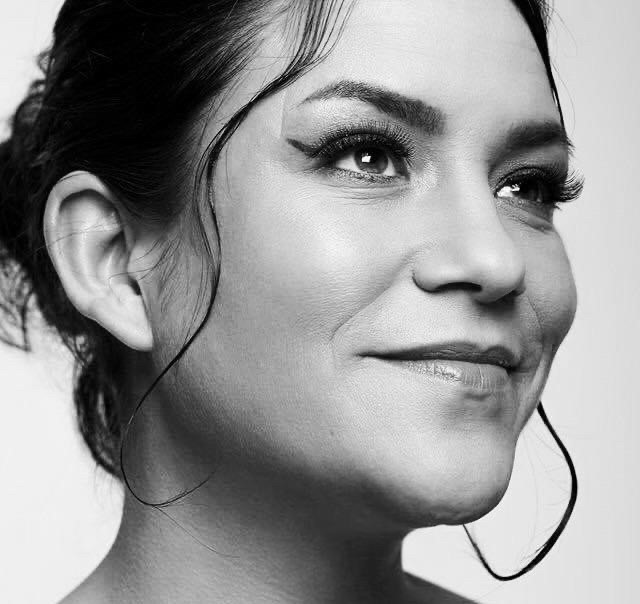
Prior to the pandemic, Dimitrakopoulos gave painting lessons to children, organized expositions of her own art, and also worked for Apple, as a software application instructor for business users. “I’ve always liked playing with computers in addition to my artistic work,” Dimitrakopoulos says.
But the pandemic shut everything down. In-person classes were canceled, and businesses were laying off workers.
Always proactive, Dimitrakopoulos began considering her next move. But she didn’t want to do something just to earn money. “I had my house to think of, but I was also searching for a new career,” she says. “I want to use my diversity of qualities.”
Dimitrakopoulos found out about the Microsoft-sponsored course being given by the Computing Technology Industry Association (CompTIA) through a local government program. The course would prepare her to be a datacenter technician in an enterprise Azure Cloud environment. More than 140 people applied for the program. Dimitrakopoulos was one of the 12 chosen.
The course material was challenging, she admits, but “I love it when something is difficult. Sometimes I studied until 11 o’clock in the evening,” she says.
She is almost done with the program, and is already being besieged with job offers. “The need for datacenter professionals is so strong, it won’t be hard to find a great job when I finish the program,” she says.
When thinking about her own future, Dimitrakopoulos likes the idea of being part of something that helps “connect.” She wants to work for an “important” organization like a hospital, because ultimately she’d be helping the patients. “They cannot work without a network or data, and I would be so excited to be part of it.”
She still paints, of course, and eventually, would like to work for Microsoft directly, using both her creative and technical skills. “This is just my first step toward my future,” she says.
A bright vision of the future
The European Commission published its Summer 2021 Economic Forecast in July 2021 that contained some heartening news. The European economy is now expected to rebound faster than previously expected: by 4.8% in 2021, and 4.5% in 2022.
The reskilling efforts by Microsoft and partners, combined with the measures the EU is taking on behalf of unemployed workers, are critical to aiding this rebound. The public and private sectors are sharing responsibility for teaching and upgrading digital skills in the post-COVID-19 world so that Europe rises up from the crisis stronger and becomes more resilient than before. Helping individuals like Engblom, Miguez, and Dimitrakopoulos grow their digital skills and find new careers will make that recovery possible.
Digital skills are essential today, and programs are needed to help people in a situation as difficult as the pandemic.
Returning to Erik Engblom, being a classical guitarist was his dream as a child, but he realized early on how much practicing it would take. “So I stopped dreaming quite fast,” he says. His friends in high school wanted to become doctors and lawyers, but he didn’t have any ambitions of that kind. “I kind of just floated along,” says Engblom, who still plays guitar in his spare time.
When his contract with Altum was terminated by the pandemic, he asked himself what skills he had lacked in that job—what would he have liked to achieve that he hadn’t? He realized that he didn’t know how to do data analysis, to explore the meaning of all the data he’d been managing. When he found the Microsoft Power BI course on social media, he signed up immediately.
Engblom chose to earn a DA-100 certificate. The training provided him with a broad overview of Power BI. He learned everything from importing data, to creating reports, to complying with licensing issues, to knowing how to upload data into the Power BI dashboard.
In five years, Engblom believes he’ll still be working as a consultant, but doing more for more Capgemini clients with a broader skill set. “I really enjoy this role, and hopefully I will have learned more about technologies like SQL and, especially, cloud, because the whole industry’s moving towards that,” he says.
Engblom has a very optimistic view of the next few years. Europe will bounce back, he believes, and the IT sector in particular will enjoy a boom. “The future looks bright,” he says.
Top photo: Adult woman working from home







